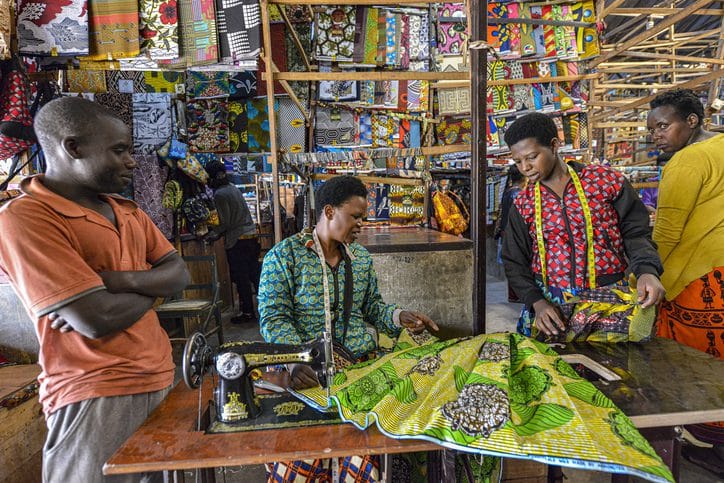How business environment reforms work; the case of Rwanda

Rwanda offers several important insights into how business environment reforms work and can lead to economic growth and poverty reduction.
Often heralded as a positive example of African development, Rwanda is a unique country with many contested issues. This small, landlocked nation can only prosper through better access to regional and international markets and increased private investment.
Business environment reform and private sector development
I have worked in Rwanda for several years on business environment reform and private sector development.
In 2015, I reviewed a donor-funded business environment reform programme. This included support for the automation of business licenses, the online issuance of construction permits, a competition agency, and the creation of an “e-PPD feedback mechanism”. This public-private dialogue mechanism is supported through mobile and internet devices (e.g., mobile phones, smartphones, tablets and laptop computers). It also included capacity support to the government to attract private sector investment into small-scale renewable energy.
The challenges identified in this review were not unusual. They included weaknesses in the public sector’s capacity to manage reform and the need for adaptive programming that responds to emerging issues and changes in the local conditions.
If nothing else, Rwanda is ambitious in what it takes on. It has grand expectations. Its Vision 2050 says Rwanda aspires to become an upper-middle income country by 2035 and a high-income country by 2050.
Business reforms that lead to economic growth
The history of business environment reform in Rwanda is mixed. There have been many significant improvements in the last decade, with broader challenges affecting overall success.
The World Bank’s Doing Business 2010 report famously praised Rwanda’s 76-place jump in the Ease of Doing Business Index, from 143 to 67. It became the first African country to top the list of the world’s most significant business reformers.
By 2019, the country ranked at number 29 but dropped to 38 in 2019. This placed it second in Africa to Mauritius at 30.
Significant reforms included exempting newly formed small and medium businesses from paying for a trading license during their first two years of operation. They also included reducing the time to obtain water and sewage connections to facilitate construction permits and improving building controls by requiring construction professionals to get liability insurance. The power grid infrastructure was upgraded and improvements were made to regulations on weekly rest, working hours, severance pay and reemployment priority rules.
The government generally applies transparent policies and effective laws consistent with international norms. The eRegulations system is an online database designed to bring transparency to investment procedures. Although implementation can sometimes be uneven, government institutions generally have clear rules and procedures. Rwanda also has an impressive virtual one-stop shop for investment.
The Transparency International 2021 Corruption Perception Index placed Rwanda 52nd in the world. It is among Africa’s four least corrupt nations.
However, Rwanda remains highly dependent on financial and technical resources from donor agencies, with more than 32 per cent of the 2019/2020 government budget financed by external resources. According to the National Institute of Statistics for Rwanda, Rwanda attracted USD 462 million in FDI inflows in 2018, representing five per cent of GDP. In 2019, the Rwanda Development Board registered USD 2.46 billion in new investment commitments. This is a 22.6 per cent increase from 2018. Foreign Domestic Investment accounted for 37 per cent of registered projects.
Support for innovation and industry development
Rwanda has also improved its support for innovation and industry development.
From 2017-2019, I also coordinated a project to promote private investment and innovation in strategic value chains. This project showed how a national government agency––the National Industrial Research and Development Agency––could work with small firms in selected value chains to increase the quality of their products and their competitiveness in new markets.
Drivers of successful business environment reform
In a fascinating 2021 research paper, Bernatzki, Busse and Hoekstra identified four drivers of change that have determined Rwanda’s progress in regulatory governance. I paraphrase these below to focus on their lessons for reformers.
1. Business environment reform for economic growth
Business environment reform is essential for achieving economic growth, which is central to Rwanda’s success.
The report’s authors describe how economic success is a priority in Rwanda to generate growth. This includes the creation of a “benevolent business environment” that reduces corruption.
While there are concerns that the government’s conduct remains more authoritarian than democratic, many gains in economic growth are passed on to the people through “wealth-sharing mechanisms”. Rwandan peasant farmers benefit from free healthcare and primary education. There are several pro-poor-growth policies and spillovers stemming from infrastructure improvements.
2. Strong leadership
Successful business environment reforms require strong, high-level political leadership. There is no doubt that this leadership is evident in Rwanda.
Described as “managerial leadership”, Rwanda’s economy is characterised by government interventions and state-owned enterprises. The state, the authors say, is governed like a company.
3. Strong institutional framework
The design and implementation of successful business environment reforms require a robust institutional framework.
The state institutional framework is highly structured from top to bottom. It is held together by a network of personal relations and an intensive, well-functioning administration.
Rwanda is a small country. Kigali’s capital is close to most of its 12 million population. This means that state authority can easily be extended to consolidate politics under a state umbrella and uniformly govern the people.
4. Aid effectiveness
External aid has been relatively effective in supporting business environment reforms.
Rwanda’s managerial leadership and its domestic adaption of development cooperation have allowed many reforms to be effectively implemented.
Achieving success through business environment reform
Economic development and poverty reduction demand a system that works at all levels.
While increased levels of private investments are required to drive growth, a good regulatory system and sound social policies are necessary to ensure the benefits of growth are broadly shared.
Understanding the dynamics of reform and development in Rwanda demand much more than this post can provide. However, there is much we can learn from Rwanda.
Successful business environments require good leadership and a functioning institutional framework. Success does not come overnight. Indeed, the process of reform is constant.


